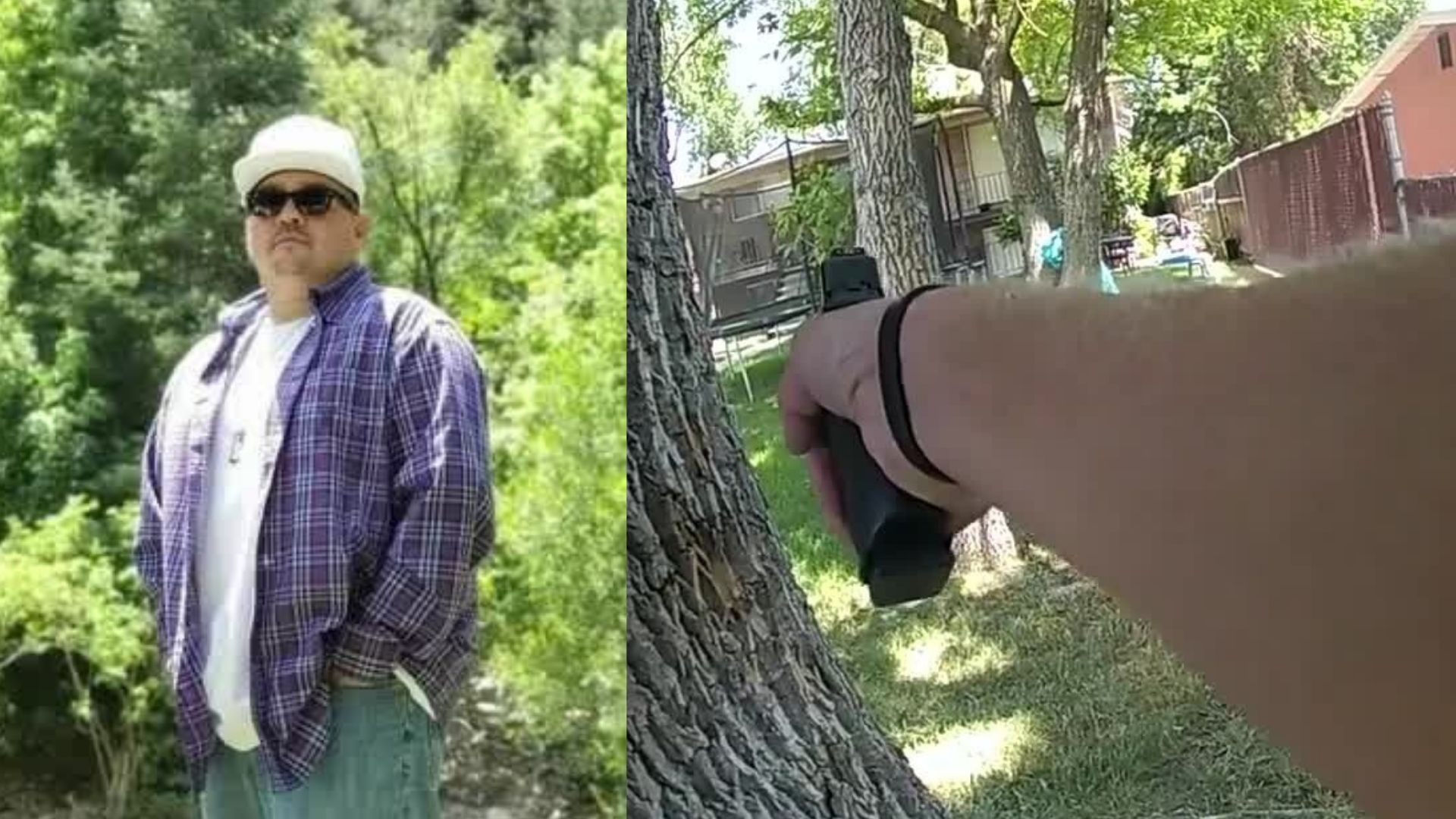SALT LAKE CITY — Salt Lake County District Attorney Sim Gill walked local news media through a presentation Friday explaining why he determined officers' use of deadly force against a suicidal armed man last July in Salt Lake City was justified.
It’s been seven months since officers exchanged gunfire with 42-year-old Navada Escholt, who was threatening to commit suicide.
“I think everybody was trying to do the right thing in this scenario,” Gill said.
Escholt can be seen on body camera video firing a shot toward the officers, forcing them to take cover and fire back.
About a minute after the exchange, Escholt retreated inside and died from a self-inflicted gunshot wound.
Officers knew this was a person in crisis, and although it ended in tragedy, Gill says officers acted with extreme restraint and care.
“They don’t want to break down the door. They don’t want to rush into the apartment,” he said.
READ: West Valley City settles lawsuit over shooting inside police station
Officers gathered near a tree about 80 feet from the apartment building as a strategy to create space between themselves and the person in distress, and to talk about what to do next.
Officers were originally called to the apartment because Escholt’s soon-to-be ex-wife called, saying Escholt was suicidal, had a gun, and wasn’t on his medication.
Gill says these elements are why the nexus between public safety, officer safety and mental illness is so complex.
“You don’t get to control the dynamics in the field, and when there is a weapon involved, it compresses that distance very quickly,” he said.
All three officers had crisis intervention training, which is why their goal was to de-escalate as much as possible.
“That proximity creates that anxiety sometimes when you are dealing with somebody who is having behavioral health challenges, so they exercise great care putting distance between themselves,” said Gill.
He says even with training, these situations are dynamic.
“You can prepare but you cannot predict what will happen,” said Gill.
But he says we need to continue to invest in more services and resources that support mental health care for our community.
“The lesson for us is, we as a community need to do better,” said Gill.
Gill also points out that 9-1-1 is often a default, but sometimes in a mental health crisis, people should first try dialing 9-8-8 — the abbreviated National Suicide Prevention Hotline number. However, in this case, because there was mention of a firearm being involved, a 9-1-1 call made sense due to the concern for public safety, along with trying to get help for the person in crisis.
FOX 13 spoke to Escholt’s wife, who wanted us to mention the National Suicide Prevention Hotline number, which is 800-273-8255.
She says her husband had used the crisis line a few times.
___________
If you or someone you know is struggling with thoughts of suicide, help is available 24/7 by calling 1-800-273-TALK (8255) or visiting suicidepreventionlifeline.org



